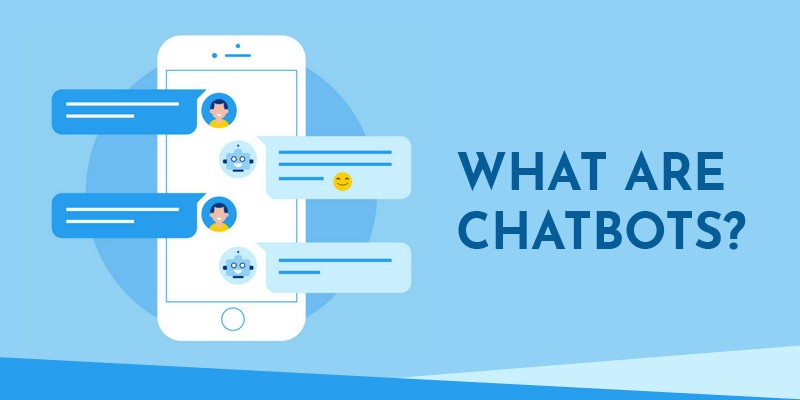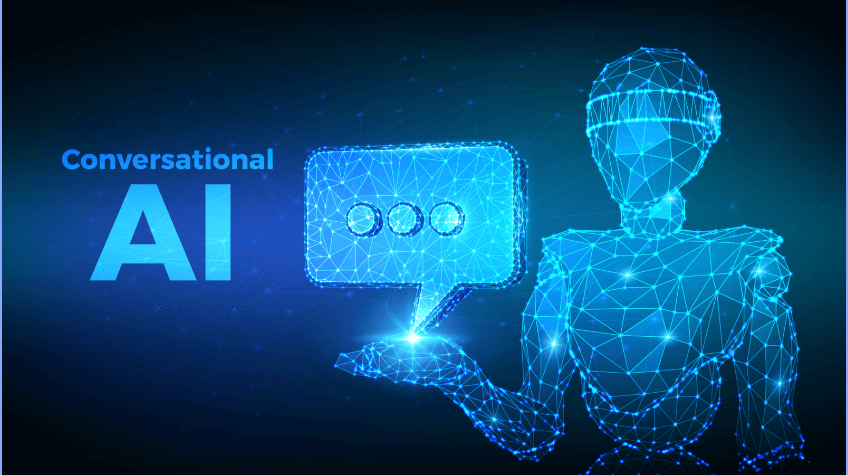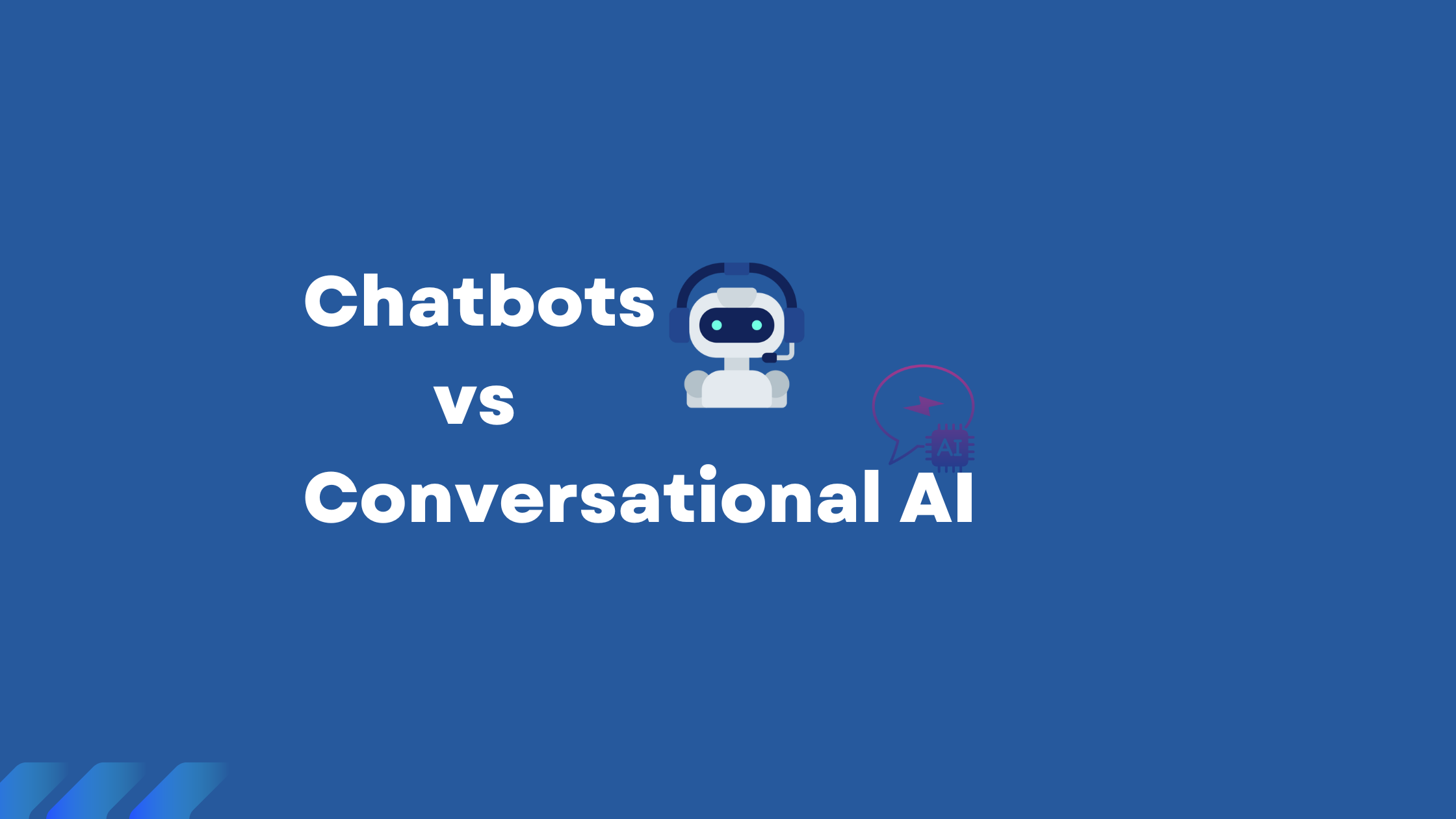Conversational interfaces enhance customer satisfaction and increase client engagement. They efficiently manage online customer service, real-time social sales, marketing automation, and more.
It’s no surprise that businesses are eagerly adopting AI chatbot solutions.
In today’s digital age, you’ve probably interacted with a chatbot or a conversational AI without even realizing it. These technologies are revolutionizing how businesses engage with customers. But what exactly are they, and how do they differ? Let’s dive into the world of chatbots and conversational AI to understand their unique features and benefits.
What Are Chatbots?

Chatbots are software applications designed to simulate human conversation. They can respond to text or spoken inputs using pre-defined rules or scripts. You might have encountered chatbots on websites, in customer service apps, or even through social media platforms. They are great at handling straightforward queries like checking account balances, providing weather updates, or booking appointments.
What Is Conversational AI?

Conversational AI, on the other hand, is a more advanced technology. It leverages artificial intelligence, machine learning, and natural language processing to understand and respond to complex human language.
Unlike traditional chatbots, conversational AI can handle more intricate tasks, offer personalized responses, and even learn from past interactions to improve future conversations. Conversational AI like YourGPT Chatbot goes beyond basic chatbot functionalities by using advanced artificial intelligence and natural language processing to handle complex interactions and provide personalized responses.
Difference Between Chatbot and Conversational AI
| Aspect | Chatbot | Conversational AI |
| Scope | Limited to pre-defined, scripted responses | Broader understanding and ability to handle complex queries |
| Intelligence | Rule-based or simple AI algorithms | Advanced AI algorithms, machine learning, and NLP techniques |
| Flexibility | Rigid structure with fixed conversational flow | Adaptable and dynamic conversational flow |
| Context Awareness | Lacks contextual understanding and memory | Contextually aware, remembers previous interactions |
| Natural Language | Basic understanding of language, may require specific phrasing | Natural language processing, can handle various phrasings |
| Personalization | Limited personalization capabilities | Personalized responses and recommendations |
| Learning Ability | Limited learning ability, requires manual updates | Continuous learning from user interactions and feedback |
| Integration | Primarily used in messaging apps and websites | Integration with various platforms (apps, IoT devices, etc.) |
| Multimodality | Primarily text-based interactions | Supports text, voice, and potentially other modalities |
| Complex Tasks | Struggles with complex tasks, mostly used for FAQs | Can handle complex tasks, transactions, and problem-solving |
| User Experience | Basic user experience with static responses | Enhanced user experience with dynamic, natural interactions |
Applications in Business
Both chatbots and conversational AI have found their place in various business applications. Chatbots are excellent for handling repetitive tasks and providing quick, straightforward responses. They are commonly used in customer service, answering FAQs, or assisting with simple transactions.
Conversational AI, with its advanced capabilities, is used in more complex scenarios. It can engage customers in natural, flowing conversations, providing support that feels more human. This technology is ideal for tasks like personalized marketing, in-depth customer support, and real-time sales interactions.
Why Businesses Are Adopting These Technologies
The adoption of chatbots and conversational AI is driven by their ability to improve customer satisfaction and boost client engagement. These technologies ensure that customers receive prompt, accurate responses at any time of day, which can lead to higher satisfaction rates and increased loyalty.
Moreover, they help businesses operate more efficiently. By automating routine tasks, companies can free up human agents to focus on more complex issues, ultimately enhancing productivity and reducing operational costs.
Final Thoughts
In conclusion, while chatbots and conversational AI serve different purposes, both are invaluable tools for modern businesses. Chatbots offer simplicity and efficiency for handling basic tasks, while conversational AI provides a deeper, more personalized customer experience.
As these technologies continue to evolve, their integration into business strategies will only grow, helping companies connect with their customers in more meaningful and effective ways. Whether you’re a small business owner or a large enterprise, understanding and leveraging these technologies can give you a significant edge in today’s competitive market.
FAQ:
Q: What’s the main difference between chatbots and conversational AI?
A: Think of chatbots as the simpler cousins of conversational AI. Chatbots usually follow a set script and can handle basic questions, while conversational AI is smarter and can understand context, learn from conversations, and handle more complex situations.
Q: Are chatbots just outdated technology then?
A: Not at all! Chatbots are still super useful for many businesses, especially for handling straightforward tasks like answering common questions or guiding users through simple processes. They’re often easier and cheaper to set up than full-blown conversational AI.
Q:Can chatbots handle multilingual interactions?
A: Yes, chatbots can be programmed to support multiple languages. By integrating language processing capabilities, chatbots can understand and respond to queries in different languages, enabling businesses to engage with a diverse customer base.
Q: And when is conversational AI the better choice?
A: Go for conversational AI when you need something more sophisticated. If you want to handle complex customer queries, offer personalized recommendations, or have more natural, flowing conversations, conversational AI is the way to go.
Q: Can chatbots handle complex conversations?
A: Chatbots are great for handling straightforward, repetitive tasks, but they often have difficulty with more complex conversations that need a deeper understanding of context or subtleties.


Leave a Reply